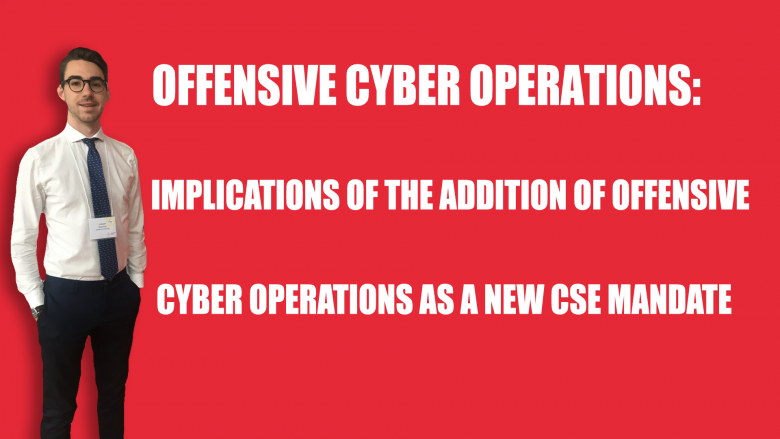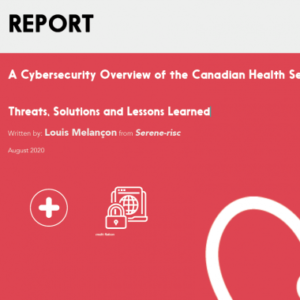Alongside land, maritime, air and space domains, cyber is quickly maturing as a domain of warfare in its own right. However, Canada has lagged its closest allies in the cyber domain. Neither the Canadian Armed Forces (CAF) nor Canada’s intelligence community currently engage in Active Cyber Operations (ACOs). This gap leaves Canadian information infrastructure vulnerable and impedes Canada’s ability to support operations around the world. Introduced in 2017, Bill C-59 proposes major changes to the way Canada organizes and conducts cyber operations. Bill C-59 would add an Offensive Cyber Operations (OCOs) mandate to the Communications Security Establishment (CSE) in order to deter and preempt threats posed by adversaries and protect Canadian interests and critical infrastructure. This presentation is part of a research project that is guided by the following research questions: Are OCOs necessary? What is driving the addition of OCOs to the CSE mandate? What are the opportunities and constraints for OCOs in general and in the Canadian context? What are our allies – and adversaries – doing, and why? Little research has been done on OCOs in the Canadian context; this presentation intends to contribute to a debate on the world’s newest rapidly emerging and controversial domain of conflict.
The slides of the presentation are available here.
About the speaker
Joseph Szeman is an undergraduate student in Political Studies and History entering his 4th year at Queen’s University. His research interests are focused on Russian foreign policy, national security and cyberwarfare. Joseph has worked as a policy analyst with the federal government at the National Energy Board (NEB) and National Defence and been a research assistant at the Centre for International and Defence Policy (CIDP) for a project on Counter Violent Extremism (CVE) policy in Canada.



